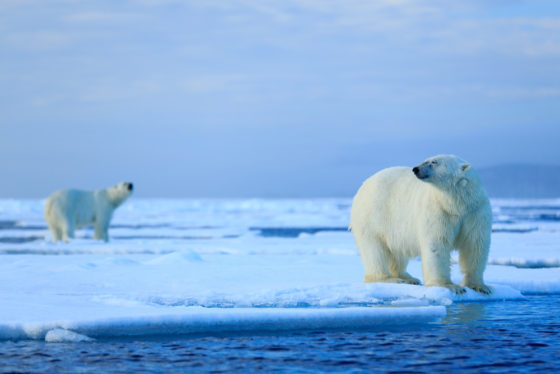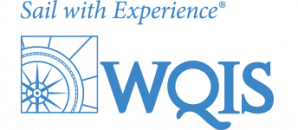NOAA Issues Guidelines for Arctic Marine Mammal Disasters

The National Marine Fisheries Service (NMFS) has issued draft guidelines on Arctic marine mammal disasters under the Oil Pollution Act of 1990. These guidelines will update the Marine Mammal Oil Spill Response Guidelines of 2006. Comments must be submitted on or before March 13, 2017.
Oil spill responses in Arctic Alaska present special challenges due to the region’s large population of marine mammals, its remote conditions and lack of infrastructure, and a dearth of equipment and personnel trained in pollution response focused on marine mammals. The animals provide important subsistence and cultural resources for Alaska’s Native coastal communities, and ship owners and operators must be prepared to cooperate with and be sensitive to the needs and preferences of the local communities when it comes to disaster response.
The proposed Arctic Marine Mammal Disaster Response Guidelines for the Bering Strait, Northwest Alaska, and the North Slope of Alaska represent the NMFS’s effort to engage all stakeholders in developing a region-specific disaster response. Suggested protocols cover communications, carcass collection, de-oiling, tissue sampling, necropsies, and subsistence food issues. Stakeholder meetings—which included local leaders in Nome, Kotzebue, wainwright and Barrow, along with teleconferences and emails with outlying communities—resulted in three key recommendations for the guidelines:
- Include a communication structure that is locally based and efficient
- Prioritize public health and food safety
- Address the lack of infrastructure, equipment and trained personnel for responses.
Reflecting those recommendations, the proposed guidelines include the following action items:
- The local stranding agreement holder or community-appointed organization(s) will be the local lead, and communication protocols outline cooperative approaches between stakeholders
- All response protocols will be congruent with food safety testing, and the Alaska state public health representative will be part of the communication loop
- Caches of equipment should be developed and stored in hub communities with smaller caches in outlying villages, to include modular and adaptive infrastructure for response activities
- Training should be developed for village residents who can be deployed remotely.
The NMFS’s jurisdiction principally covers whales and ice-associated seals, so the draft guidelines deal particularly for those species. Different protocols may be needed for other Arctic mammals, such as walrus and polar bears, which fall under the management of the U.S. Fish and Wildlife Service. The two agencies cooperate under the Unified Plan.
Arctic marine mammal pollution spill disaster response plans having to do with NMFS-managed species should be coordinated with the NMFS through the incident command structure when vessel owners, operators or affiliated partners are responding to an oil spill or another major event.
An efficient communication strategy is of particular interest to the NMFS, and the regulator spotlights that as an area in which it needs suggestions to ensure its guidance provides a workable structure.
A Little of the Backstory
At the Marine Mammal Commission’s 2012 annual meeting in Anchorage, Native hunters highlighted the sensitivity of marine mammals to sound waves and vessel activity, saying that whales, and the seals the whales eat, may become contaminated by exposure to various pollutants, including oil from spills, through consuming contaminated prey or by direct exposure to the pollutants. These presenters expressed doubt that current oil-spill response techniques are adequate to clear the sea before animals are exposed.
A 2014 National Research Council report, Responding to Oil Spills in the U.S. Arctic Marine Environment, targeted as an area of concern the lack of adequate oil-spill response tools, capabilities and infrastructure in the U.S. Arctic. It called for carefully controlled field testing of current and emerging technologies in realistic conditions. The Marine Mammal Commission points to a handful of important obstacles to a quality spill response that were identified in the National Research Council report, including a “severe shortage of housing, fresh water, food, sewage handling and garbage removal facilities, communications infrastructure, supplies, and hospitals and medical support.”
That report recommended better communication and planning among U.S. agencies (federal and state) and with international partners, such as Canada and Russia. It also recommended oil-spill training for local communities and the integration into spill response plans of traditional local knowledge of ice and ocean conditions and marine life.
The Marine Mammal Commission notes that the Marine Exchange of Alaska has developed a vessel tracking system in Alaska with more than 125 automatic identification system receiving stations that help improve maritime spill prevention. Vessel owners, operators and others who gain authorization to use the secure system can view vessel’s locations and movements.
There currently exist three levels of wildlife protection response strategies, based on the Unified Plan.
Primary Response: Preventing oil from contaminating animals and their habitats
Secondary Response: Preventing animals from entering polluted areas
Tertiary Response: As a last resort, capturing, treating, rehabilitating and releasing oiled animals.
As a point of assistance, the National Oceanic and Atmospheric Administration gives some pointers on making effective comments on proposed rules and guidelines. Here are a few of the essentials:
- Clearly identify the issues in the notice you are commenting on.
- Confine comments to the Federal Register notice you are referencing and focus comments on the issues falling within the scope of the proposed rules.
- Clearly state if you are in favor of or opposed to the proposed rule or some part of it and say precisely why, using data to support your position.
- Briefly identify your capacity as a professional, a spokesman or whatever kind of stakeholder you are.
To see comments by other stakeholders, if any exist, visit the NOAA proposed regulations page here.
About Water Quality Insurance Syndicate
Since 1971, WQIS has been involved in more vessel pollution events than any other marine pollution provider. Having the right team immediately available in the event of a loss is crucial for mitigating damages, getting clients back to an operational status and the claims process. Our team is made up of an extensive network of trusted professionals to assist from the moment a spill occurs until the spill is cleaned up. For more information about our insurance solutions and services, call us at 212-292-8700.
